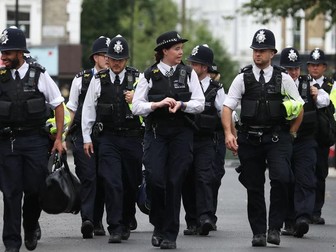L3 - Uniformed protective Services - Obedience when working in uniformed protective services
<p>Understanding the role of obedience when working in the uniformed protective services.<br />
• The importance of obeying orders and commands from those in authority:<br />
o following an order to perform a task/to achieve an objective<br />
o a practice to make the service efficient and disciplined<br />
o a personal quality allowing for mutual respect.</p>
<p>The impact of obedient and disobedient behaviours<br />
Understanding the positive and negative effects of each behaviour.<br />
• The impact of obedient behaviours:<br />
o extrinsic rewards – praise and respect, medals, extended leave, promotion, pay rise<br />
o intrinsic rewards – pride, job satisfaction, team spirit/morale, trust.</p>
<p>• The consequences of disobedient behaviour:<br />
o loss of rank<br />
o reduction in pay<br />
o suspension<br />
o loss of job/dishonourable discharge</p>
<p>Full lesson. Videos/discussions/exam question.</p>

